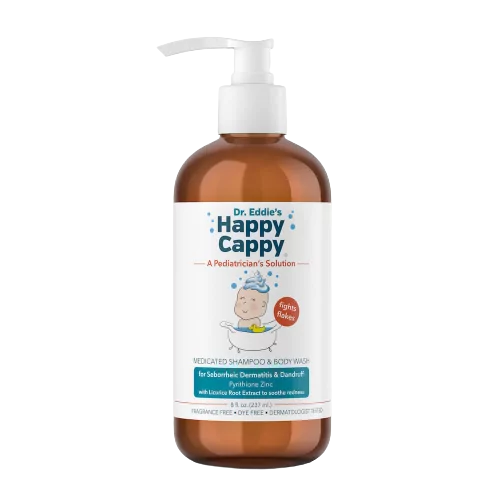
The word ‘Itching’ itself has the ability to trigger an urge to scratch. It is an experience that every living being on this planet has stumbled across. Itching can be irritating whether it’s for a few moments from a mosquito bite, or like an unwelcome guest that barges on to your door, takes up residence on your skin, and decides not to go away.
In medical terms, this persistent itch is known as Chronic itching. In this blog, we will take you on a journey to explore the causes, symptoms, and effective treatment options for chronic itching, a condition that is more complex than it looks.
What Is Chronic Itching?
Itching also known as pruritus, can be of two kinds acute and chronic. Acute itching is when it stays for only a short period of time. However, chronic pruritus lasts for more than six weeks. Chronic itch is more severe, as prolonged scratching and itching can highly impact the quality of life and your skin.
Persistent itching can disrupt your sleep, and cause anxiety, stress, and depression. It can also affect your self-confidence as it can show up at any time even at the most important moments of your life. Continuous scratching due to the itch can cause skin infections, scars, and skin injury.
There are many reasons that might be causing your chronic itch from eczema and psoriasis to kidney disease. To find the most effective treatment option, it is essential to first understand its underlying cause and manage it.
Causes Of Chronic Itching
There are many reasons that can cause itching of the skin, from an underlying medical condition to allergies. Here are some of the most common reasons that cause chronic itching.
Eczema
Eczema is a chronic inflammatory skin condition that is famous for its itching, inflammation, redness, and dry skin. Eczema mostly appears in the skin folds such as inside and outside of knees, elbows, wrists, hands, and ankles. Eczema is more common in babies which is known as baby eczema, than in adults. It is also known as Atopic Dermatitis.
It is caused by a disrupted skin barrier which is believed to be caused by a combination of factors such as genetics, stress, and allergens. Eczema usually persists for a longer period and appears again and again in the form of flare-ups. These flare-ups can be easily managed by following an eczema skincare routine which includes the use of Eczema shampoo body wash and eczema cream.
Neurodermatitis
Neurodermatitis is a chronic skin condition. It is also known as lichen simplex chronicus. One of the most prominent symptoms is itchy patches of skin that appear on the neck, legs, forearms, and wrists. The neurodermatitis itch is intense and scratching it can cause the skin to become thick and rough. The itching associated with it can disrupt your sleep, self-confidence, and quality of life. The exact cause is still unknown but it is believed to be caused when the skin comes in contact with an irritant. Neurodermatitis can be managed by managing the itching and dry skin.
Internal Disease
Itching is usually believed to be caused by skin issues but in reality, other medical conditions especially internal medical conditions can also cause chronic itching. When the itching has no obvious cause and doesn’t get better with OTC products then it is mostly due to an internal disease. Some of the most prevalent diseases that cause itching are
- Diabetes
- Thyroid disease
- Lymphoma
- Anemia
- HIV
- Liver disease
- Kidney disease
Itching from an internal disease can be difficult to manage. As it can only be treated once the disease is controlled.
Dyshidrotic eczema
Dyshidrotic eczema is known for its itching and development of vesicles. The most common places it appears are on the hands mostly on the palms and on feet. The exact cause for this skin condition is still not known but people with excessive sweating are more prone to it. It can also be triggered by seasonal changes, or when the skin comes in contact with an allergen. It can be managed with the help of topical steroids. But remember never to use any topical steroid without the advice and consent of a doctor.
Symptoms Of Chronic Itch
Some of the most common symptoms associated with chronic itch are:
- Inflammation
- Rashes
- Blisters and spots
- Dry skin
- Scaly patches
- Redness( light skin tones) /Purple appearing skin (dark skin tones)
- Scratch marks
Is Scratching The Solution?
Scratching is never the solution to itch. In fact, it creates a vicious cycle of scratching and itching that can further lead to complications. Scratching will always make the condition worse whether it’s eczema or just the dry skin that is causing the itch.
Scratching might make you feel good for a moment or two, but when you scratch, the body releases serotonin, which can make the itching even more itchier. When you are having chronic itching, scratching can cause the skin to break, form wounds, and lead to infection.
Instead of scratching it is better to pat or rub the area, or use a cold compress or an anti-itch cream to relieve the itching. However chronic itching can only be treated when the underlying cause is treated properly.
When To See A Doctor?
If your itching lasts for more than two weeks or is not getting any better it is a good idea to consult the doctor. They will be able to properly diagnose the underlying cause of your chronic itch and provide a treatment plan according to it. Some obvious situations where you must consult a doctor are
- Itching is accompanied by fever.
- Itching that disrupts your sleep.
- Itching is caused by a rash that is quickly spreading to the rest of your body.
- If you are unsure about the cause of your itch.
- If you notice any signs of skin infection.
Chronic Itching Treatment
Chronic itching can only be treated once the underlying cause for it is managed properly. But you can easily manage the itching and relieve it by taking care of your skin and following a few simple steps.
- Moisturize the skin regularly with the help of a dye-free, fragrance-free, and paraben-free moisturizer.
- Skip the idea of taking long hot baths and showers, instead limit the time of bath to 10 minutes and only once a day.
- For baths use mild cleansers or a body wash that is hypoallergenic, rather than using scented soaps and body washes with harsh chemicals like sulfates that can dry the skin.
- Use sunscreen while going out to protect the skin from sunburns and skin damage.
- Use lightweight and soft cotton clothing and bedding and avoid fabrics that can worsen the itch such as wool and synthetic.
- Warm and dry air can make the condition worse. Try keeping the temperature of your house moderate with the help of an air conditioner and humidifier.
- If the itching is severe consult your healthcare provider–they may prescribe an anti-itching cream.
Managing Eczema flare-up
Even though eczema is a chronic condition and there is no permanent cure for it, it can be managed with proper skincare. There are many OTC products, but picking the right ones is essential.
The first step to managing eczema is keeping the skin clean from any pathogens like bacteria, dirt, or viruses that can further exacerbate the condition. We will delve deeper momentarily…The second important step to alleviate the itching and dryness of eczema is to keep the skin well hydrated at all times–a thick lotion or cream is needed.
Dr. Eddie has formulated a Happy Cappy Two-Step Eczema Skincare Routine to easily manage eczema symptoms. This bundle contains a Happy Cappy Daily Shampoo and Body Wash, which can be used as a face wash as well.
Going deeper…The acid-base balance (known as pH) of eczema-prone skin is often abnormal. Skin is normally acidic with a pH of around 5, but with eczema, it can become basic–the pH climbs to around 11.
Happy Cappy has a low pH to bring the skin back to its normal acidic pH. This enhances the skin’s normal barrier function and enhances the skin’s innate antimicrobial activity. Happy Cappy Daily Cleanser avoids drying sulfates and is infused with potent humectants like apple fruit extract and hyaluronic acid. It gently cleanses and moisturizes the skin and protects its normal barrier function.
The bundle also contains Happy Cappy Moisturizing Cream. Applying it twice daily will soothe and protect your eczema-prone skin. It contains the natural ingredient licorice root extract and is combined with glycerin and pharmaceutical-grade petrolatum to help soothe redness associated with eczema. It helps in restoring the natural skin barrier by locking in moisture.
Conclusion
If itching persists for more than six weeks then it is considered as chronic itching. It can be bothersome and may affect the quality of your life and sleep. Chronic itching is mostly caused due to underlying diseases or issues such as eczema, neurodermatitis, kidney disease, liver disease, HIV, etc. It can only be treated once the underlying cause for it is treated. However, the itching can be managed for the time being by keeping the skin clean and moisturized.
FAQs
When should I be worried about itching?
When itching does not get better with the use of OTC products, or if it gets worse with time and spreads to other parts of the body, or if it is accompanied by fever and signs of infection then you should be worried about your itch. It is advised to consult a doctor so they can diagnose the cause of your itch and provide treatment for it.
Which illness can cause itching?
Diseases such as kidney disease, liver disease, anemia, thyroid issues, diabetes, and certain types of cancer can cause itchy skin.
What does atopic itch mean?
The itching that is caused by atopic dermatitis or eczema is usually known as atopic itch. It appears in the form of red, dry, itchy rashes.
Does chronic itch go away?
Chronic itching can be difficult to treat as it is caused by an underlying disease or skin condition. It can only be managed once the root cause has been treated. The itch may appear again if the issue arises again such as eczema flare-ups.
Can chronic itching cause other complications?
Yes, chronic itching can be bothersome and may affect one's self-confidence, as they are unable to control the urge to scratch when they are working or in front of others. This can impact their quality of life and cause anxiety, depression, and social distancing.










